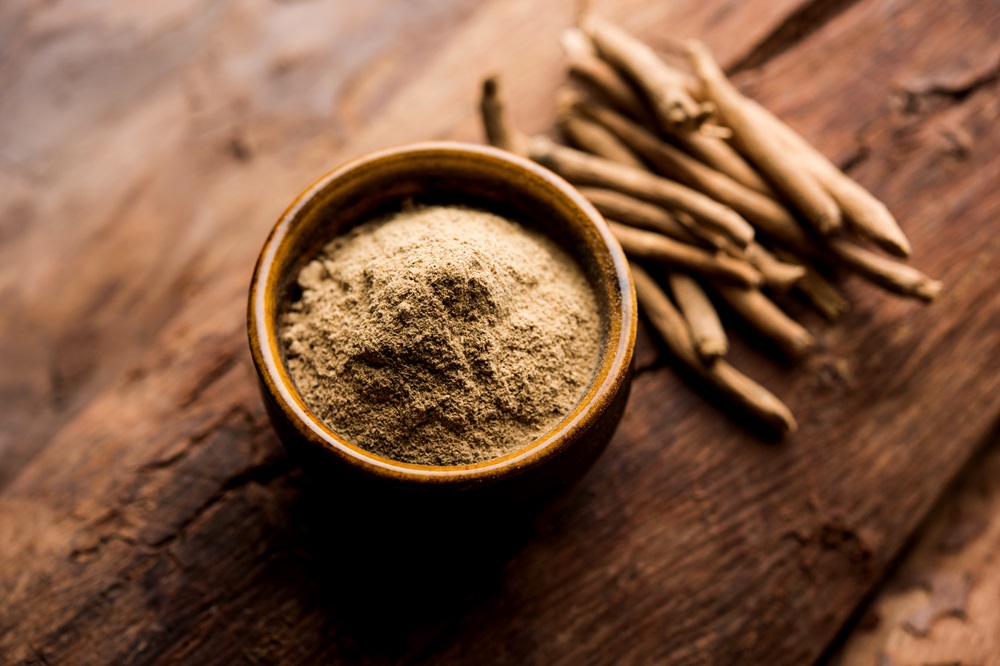Ashwagandha - morning or night? When to take Ashwagandha?

Ashwagandha is a plant classified as an adaptogen, which has gained significant popularity among consumers worldwide. Due to its richness in valuable compounds, withania somnifera is widely available in the form of dietary supplements, often used as a beneficial addition to the daily diet. Ashwagandha - when is the best time to take it, in the morning or in the evening? How should you use dietary supplements containing withania somnifera?
Table of contents
- What is ashwagandha?
- Ashwagandha - morning or evening?
- Ashwagandha - when to take it?
- How to supplement with ashwagandha?
What is ashwagandha?
Ashwagandha, from the Latin Withania somnifera, also known as winter cherry, is a plant from the nightshade family, an evergreen shrub that can grow up to 150 cm tall. It naturally grows in regions of Southeast Asia, as well as Africa and Mediterranean countries such as Greece and Spain.
Ashwagandha is considered an adaptogen - a natural substance that can help regulate the body’s homeostasis, increasing resistance to stress factors. It is regarded as a treasure trove of beneficial compounds, including withanolides, and is widely used in the form of dietary supplements.
Also called Indian ginseng or poison gooseberry, ashwagandha may help reduce stress levels in the body, as well as decrease anxiety and tension. It can also show a range of other health-promoting properties, supporting the body’s daily functioning.
Ashwagandha - morning or evening?
Many people considering taking supplements with withania somnifera wonder when it’s best to take ashwagandha. The answer is simple - it depends. The right time for taking Indian ginseng is an individual matter, depending not only on personal preference but also on the expected effects.
If the purpose of taking ashwagandha is to calm and relax the body, it’s best to take the supplement in the evening, about an hour before bedtime. This approach may help lower cortisol levels in the body, reducing stress and positively affecting mood. Taken in the evening, ashwagandha may make it easier to fall asleep and improve the quality of nighttime rest.
On the other hand, if the goal is to increase stress resilience and boost motivation and performance during daily activities, the supplement is best taken in the morning, right after waking up. However, it’s worth checking whether morning ashwagandha causes drowsiness - if so, it may be better to switch to an evening schedule.
Ashwagandha - when to take it?
People struggling with digestive issues should consider taking ashwagandha with a meal or right after eating, as Indian ginseng taken on an empty stomach may cause unwanted symptoms such as bloating, stomach pain, or nausea.
When should physically active people take ashwagandha? In this case, the timing depends on the athlete’s individual body response.
Ashwagandha is an adaptogen, and it’s commonly believed that adaptogens may help improve muscle endurance – so taking Indian ginseng before a workout could be a good option. However, since withania somnifera can cause drowsiness in some people, it might be better to use it after training or before bedtime – in such cases, the supplement may support recovery processes in the body and help reduce inflammation in the muscles.
How to supplement with ashwagandha?
Supplements containing concentrated ashwagandha extract are best taken with a high-fat meal, which can improve absorption and bioavailability in the body.
When taking ashwagandha as a dietary supplement, it’s important to consider possible interactions with other medications. Additionally, always follow the manufacturer’s recommendations and the dosage instructions on the product packaging – while ashwagandha is generally considered safe, excessive intake of its compounds can cause side effects such as vomiting or diarrhea.
To support overall health, it’s best to focus first on regular supplementation and then adjust the timing to your body’s needs and expectations. Regardless of whether Indian ginseng is taken in the morning or at night, it can have a positive effect on the body and help achieve desired results.

